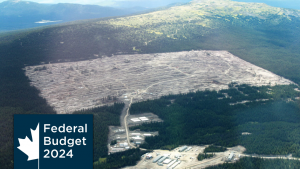TORONTO — Avison Young predicts the 10-year bull market in commercial real estate growth in Canada will continue in 2019 in its newly released 2019 North America, Europe and Asia Commercial Real Estate Forecast.
The annual report covers the office, retail, industrial and investment sectors in 68 markets within seven countries on three continents including, in Canada, Calgary, Edmonton, Halifax, Lethbridge, Montreal, Ottawa, Regina, Toronto, Vancouver, Waterloo Region and Winnipeg,
The strength in the Canadian commercial sector was supported by the lowest unemployment rate in at least four decades, noted the report. For several months, the lack of an amicable trade deal with the U.S. was a destabilizing factor on many fronts, but the prospective United States-Mexico-Canada agreement removes some of the doubt. Meanwhile, new federal and provincial measures appear to have stabilized the housing market, the release said.
“Strong performances in 2017 and 2018 have led to supply constraints amid a maturing commercial real estate cycle in Canada,” said Bill Argeropoulos, a Canadian research leader for Avison Young, in the release. “Activity is expected to remain stable in 2019 with a general supply constraint being the primary brake on property market growth. Meanwhile, occupiers and owners will have to adjust to rapid technological advances during a period of moderating economic growth.”
According to the report, Canada’s office sector remained sound in 2018, though softness persisted in Alberta. Competition for office space, especially in downtown markets, continues to underpin the sector’s fundamentals nationwide. Office vacancy declined in almost every market, lowering the Canadian average to 11 per cent near year-end 2018. A similar story is expected in 2019 although vacancy will rise modestly to 11.3 per cent by year-end after construction nearly doubled in 2018.
Argeropoulos noted, “Toronto and Vancouver reaffirmed their presence among North America’s top-performing office markets as Canadian markets captured five of the continent’s 10 lowest vacancy rates.”
The report stated that low single-digit vacancy characterized Canada’s industrial markets. Overall industrial vacancy continued to decline, falling to a new record low of 2.9 per cent near the end of 2018, and it’s expected to edge lower in 2019.
Toronto (1.3 per cent) and Vancouver (1.5 per cent) posted North America’s lowest vacancy rates in 2018 and are projected to rank among the tightest three markets in 2019.
Retail properties remain the most unpredictable commercial real estate assets in Canada, said Avison Young. Retail vacancy remains in flux as a lingering result of the failures of some prominent chains. But with the final tally yet to come, 2018 was another record year of investment, exceeding the previous high of $36 billion set in 2017. Capital is abundant and, in search of higher yields, investors are looking to take advantage of landlord-favouring markets and sectors offering significant rental-rate growth.











Recent Comments
comments for this post are closed